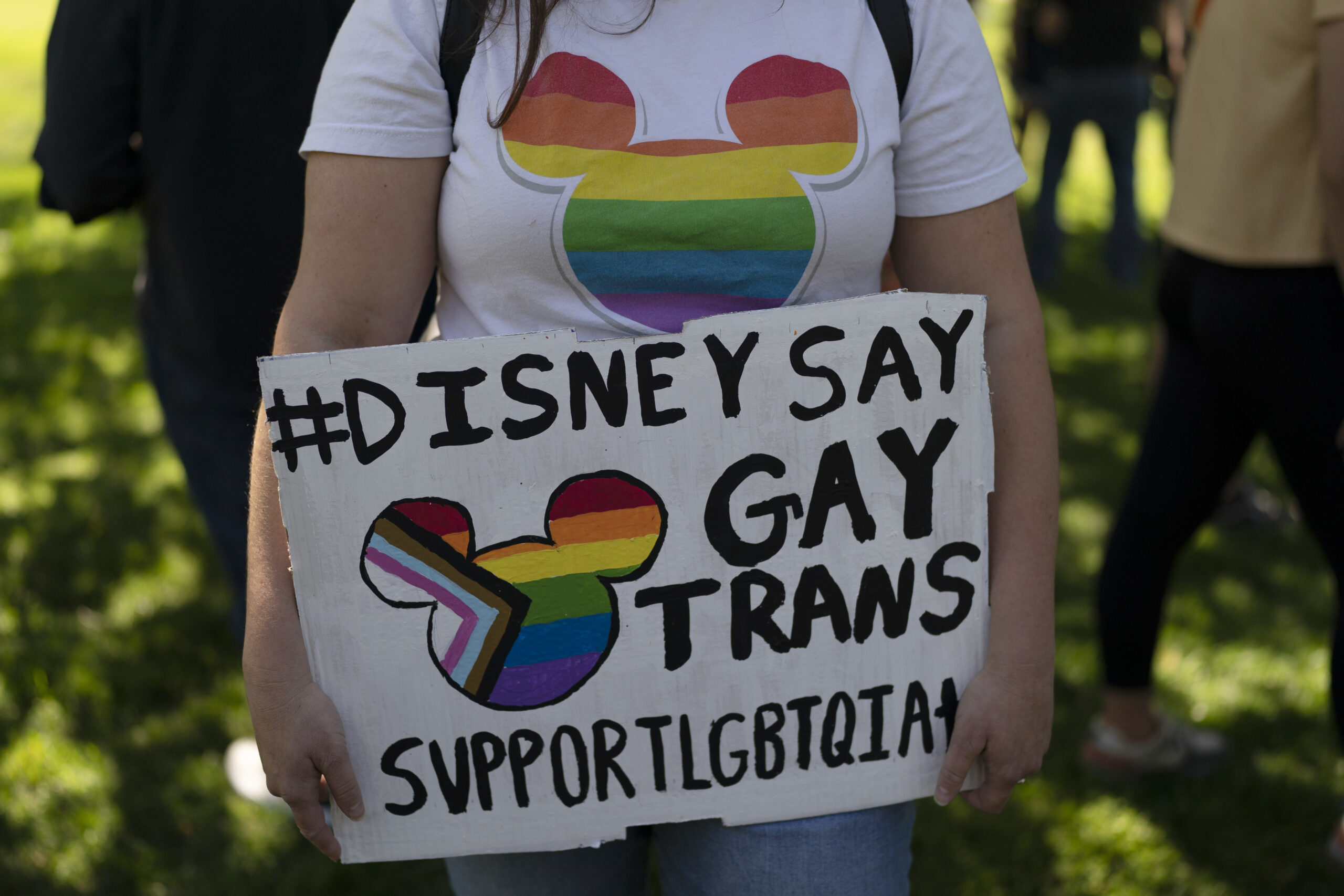The Walt Disney Company is as American as apple pie and hardcore pornography. What does it mean that this week, Karey Burke, president of Disney General Entertainment Content, said she wants 50% of Disney’s characters to come from “underrepresented groups” or be from the “LGBTQIA” community?
Burke wasn’t alone in insisting that Disney’s traditional characters are from historically overrepresented and privileged groups such as singing mermaids, tap-dancing elephants, and Goofy — he identifies as a dog. Allen March, a production coordinator, has created a “tracker” to make sure his team generates enough “gender-nonconforming characters” and “canonical trans characters.” Latoya Raveneau, an executive producer in the animated division, thanked senior management for welcoming “my not-at-all secret gay agenda” and got animated about how she’s sprinkling “queerness” over her plots, including a gender-fluid Fairy Godmother.

This was a brave “allyship” from Burke and her fellow Imagineers. Except it wasn’t, because they said it on the down-low in a Zoom meeting and a traitor to the Magic Kingdom leaked it. The Disney executives had rallied to denounce House Bill 1557, the Parents Rights in Education Bill that Florida Gov. Ron DeSantis has signed into law that advises teachers to concentrate on teaching the alphabet and other basics rather than propagandizing for an alphabet soup of largely fictional gender identities, at least until the children are in fourth grade.
What would Walt Disney say if we defrosted him from his cryogenic sleep after 56 years in the freezer? Knowing Walt, he’d probably blame it on the Jews and go off on Twitter about “cultural Marxism.” He might also ask what in the Dick Van Dyke has been going on in America.
Walt has been on ice since 1966. A lot has changed. It wouldn’t all be bad news — the old bigot would be pleased to learn that the agenda of the John Birch Society has regained influence in the Republican Party — but Walt would fear for the business when he heard about the collapse of his target audience, the American family.
Still, once Walt had calmed down with a hit of fentanyl or some other innovation, he might reach the same conclusion as the people who now run the shop. The old Disney strategy was to push the family values of midcentury America with characters and plots that made the kids laugh but that, above all, flattered the dads. For in those near-forgotten days, dad was the winner of the bread, the keeper of the wallet, and the one who decided when the family went to the movies or on that once-in-a-lifetime pocketbook meltdown: a trip to a Disney resort. Hence Mr. Banks contacting his inner child in Mary Poppins and the lovable schlubbiness of Baloo as he ushers Mowgli into manhood in The Jungle Book.
These days, Baloo is on Pornhub and Mr. Banks is on Tinder. In a world of absent fathers and atomized families that blend faster than a moldy avocado, the children are now the customers. Children’s entertainment is no longer a family trip to the movies: It’s a vast digital orphanage. The faster you lil dreamers understand March and his friends are tracking you from the moment you’re born and that your economic future rests on commodifying yourself in the right kind of way, the better for you — and best of all for the digital predators who will monetize you like a plastic princess or a Donald Duck plushy.
This is nothing new. Call me Noam Chomsky, but Disney has always been the propaganda wing of the technocracy and the kindergarten of the military-industrial complex. That’s why Randi Weingarten, chief imagineer of the American Federation of Teachers, defends the teaching of “gender ideology” in the kindergartens of America. The American Federation of Teachers is as fused to the Democratic Party as Hollywood and Silicon Valley are.
The mouse follows the money, all the way to Asia — and he knows when to cock a deaf and perfectly round ear. As DeSantis said, Disney runs cruises to Dominica, where homosexuality is criminalized, and it sees so little evil in the Chinese Communist Party’s persecution of the Uyghurs that it filmed parts of its Mulan sequel in Xinjiang. The “sex-positive” virtue signals are for the domestic market.
But I wouldn’t start casting Disney’s version of The 120 Days of Sodom just yet, even if that would exceed Burke’s quota in one go. The parents of Asia aren’t just less accepting of this sort of decadence — they’re actually married, and unlike much of the American middle class, they have disposable cash. Market forces may yet restore a moral foundation to Disney’s bottom line. But when they do, those forces will come from America’s competitors and rivals.
Dominic Green is a historian and critic. His latest book, “The Religious Revolution: The Birth of Modern Spirituality, 1848-1898,” is published this month by FSG.






